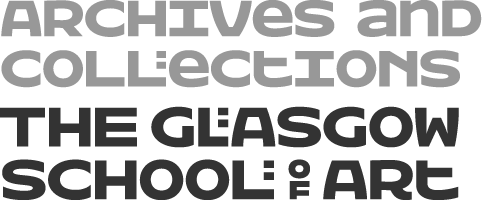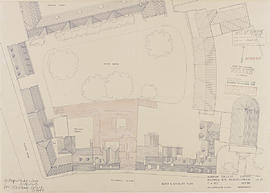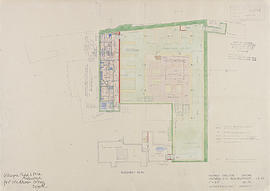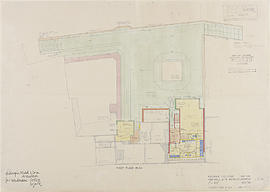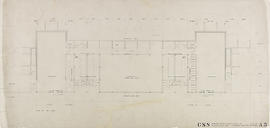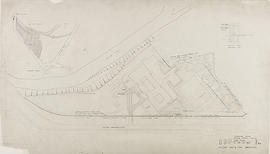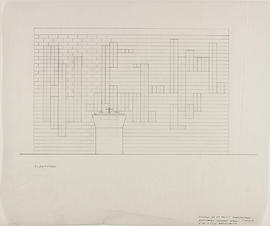Includes two copies of architectural sketches for an early English doorway, entrance to Chapter House, Glasgow Cathedral. Sketch is dated 28 January 1903, supplement to The Builder's Journal and Architectural Record, measured and drawn by Charles Forsyth. Also includes collection of architectural lithograph prints, sketches, and watercolours of various locations including Paris, Rome, Cairo, and throughout the UK, some by E. Hildebrandt. Two have a stamp on corner of work, "Department of Science and Art, Specimen presented to schools". Also includes coloured prints of various rooms in the Great Kremlin Palace in Moscow, Russia. Views include halls, courtyard, indoor garden, holy vestibule, throne room. Labelled in Russian and French, some include English labels written in pencil. Also includes collection of printed architectural plans and designs including two ordinance surveys of Garnethill and City Centre/Sauchiehall St., three copies of a poster of "100 Years of British Architecture" by The Observer, a floor plan of the Great Kremlin Palace in Moscow, a poster of "James Caldwell & Co. Abbotsford Stained Glassworks" designs, and three small architectural sketches/plans/designs of Grey Friars Church in Edinburgh, Chartres Cathedral in France, and Candlish Memorial Church in Glasgow.
